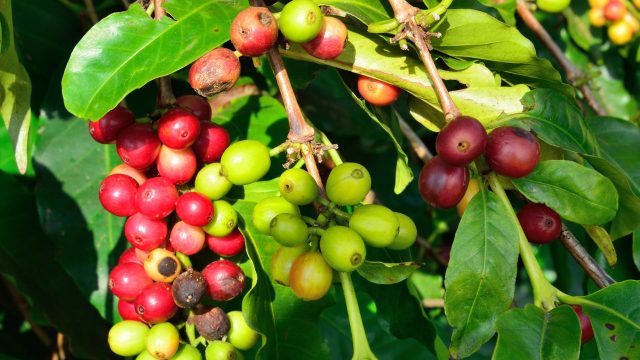06
Jun
Hawaii Officials Prepare to Release Wasp as Biocontrol to Protect Coffee Crops

(Beyond Pesticides, June 6, 2023) Government agencies in Hawaii are making preparations to release a small parasitoid in an attempt to control infestations of coffee berry borer (CBB) in the state, according to a release published by the University of Hawaii. “This biological control agent has the potential to make significant positive economic impacts in the Hawaiʻi coffee industry, and offers an environmentally safe way to manage CBB,” says Mark Wright, PhD, professor at UH. “The Hawaiʻi coffee industry is economically and culturally significant, and we hope that this work will improve the lives of many people associated with the industry.” The planned release comes at a time of increasing interest in nontoxic biological pest management as a means of reducing the harmful effects of industrially produced pesticides.
As early as fall 2023, the U.S. Department of Agriculture’s Agriculture Research Service (USDA ARS) and UH’s Department of Plant and Environmental Protection Services plan to release thousands of parasitic wasps throughout coffee growing areas in Maui, O’ahu and the Big Island. The parasitoid in question is Phymastichus coffea, a wasp that lays its eggs in the abdomen of coffee berry borers. According to researchers, the wasp becomes attracted to the coffee berry borer based on a chemical signal the pest releases when it digs into coffee fruit.
Scientists have been researching the parasitoid since 2018, bringing in quarantined shipments into the state to test on native insects with similarities to the coffee berry borer to ensure there are no unintended side effects. As it currently stands, the coffee berry borer is found in all coffee growing regions except for Nepal and Papua New Guinea. “CBB arrived in Hawaiʻi without the natural enemies that keep populations in check in its native range in Africa,” said Peter Follett, PhD, of Daniel K. Inouye U.S. Pacific Basin Agricultural Research Center. “The introduction of the African parasitoid wasp Phymastichus coffea will reunite CBB with its most significant natural enemy from home. Releases of this wasp in coffee in Colombia against CBB have been shown to limit populations to subeconomic levels.”
To date, testing has shown the parasitoid to be highly specific to the coffee berry borer. The wasps will be brought from Columbia and bred for two generations prior to release, and in order to ensure the colony is without any foreign diseases or contamination.
Coffee berry borer is the most harmful pest a coffee farm is likely to encounter, able to work its way through a crop and destroy up to 80% of produce. The pest can result in the premature fall of young berries, yield and quality reductions, and increased vulnerability to fungal or bacterial infection. This is particularly problematic as Hawai’i coffee growers are also dealing with the impact of coffee leaf rust, a devastating disease that can result in long term-yield reductions to coffee crops. In 2019, the pest was responsible for over $7.5 million in crop damage.
“If all goes according to plan, it’ll make a massive impact,” said Dr. Wright of the parasitoid’s introduction. A study published in 2020 in Nature Ecology and Evolution found that biological pest management has added billions of benefits to agricultural economies over the last century, larger than the apparent benefits of the so-called ‘green revolution’ that enabled the spread of industrial agriculture.
New biocontrols are on the horizon for a range of problematic pests, including the ‘tree of heaven’ (Ailanthus altissima), the spotted wing drosophila (SWD) (Drosophila suzukii), and fire ants.
Humans armed with chemical weapons that indiscriminately kill broad swaths of life over artificial, monoculture landscapes are poor replacements for the sort of specificity and efficiency that natural predators can provide. It is critical that more research and investment be placed into this safer, natural approach to pest management.
Readers at home can employ their own form of biological control for many common yard and outdoor pest problems through online retailers, such as Arbico Organics. Make certain that the use of any pest management fits within a broader, structured, ecological approach to pest management. Use Beyond Pesticides ManageSafe webpage to assist.
All unattributed positions and opinions in this piece are those of Beyond Pesticides.
Source: University of Hawaii press release, Hawaii Public Radio










